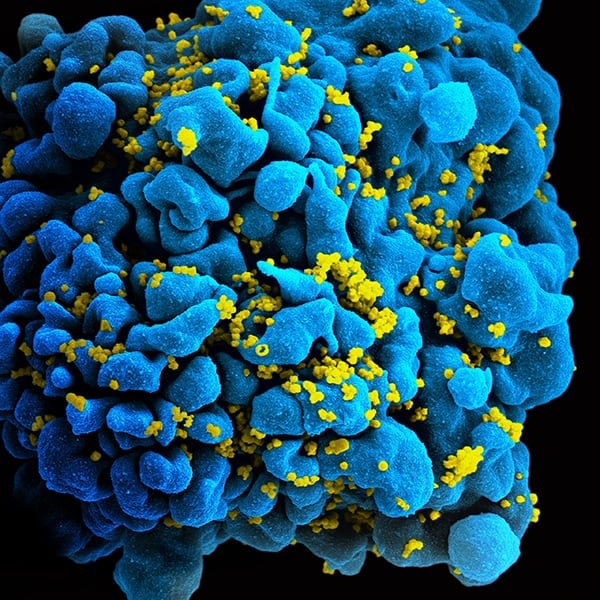
In a study published Monday in the Journal of Virology, researchers from the UCLA AIDS Institute and from the Center for AIDS Research found that a a type of immunotherapy that uses artificially-created immune T-cells to fight cancer cells may also help the body to kill cells infected with HIV-1.
These artificially-created cells, known as chimeric antigen receptors (CARs) are designed to target and kill specific cells containing viruses or tumor proteins.
Scientists tried this approach for HIV-1 infection in the late 1990s, but the study was “abandoned for a lack of efficacy.”
They've now decided to give the idea another try because of seven recently-discovered “broadly neutralizing antibodies” (BNAs) that have the ability to bind multiple strains of invading viruses, unlike earlier isolated antibodies that tend to bind few strains.
“We took new generation antibodies and engineered them as artificial T-cell receptors, to reprogram killer T cells to kill HIV-infected cells,” said Dr. Otto Yang, professor of medicine at UCLA and the study's correspondent author.
“Others have used antibodies against cancer antigens to make artificial T-cell receptors against cancer and shown this to be helpful in cancer treatment.”
In a UCLA press release the researchers announced that all seven BNAs had varying degrees of ability to direct killer T cells to proliferate, kill and suppress viral replication in response to HIV-infected cells.
Dr. Young is cautious, but optimistic: “what works in a test tube doesn't necessarily work in a person,” he said, but the results are promising.
“These findings indicated that BNAbs are excellent candidates for developing novel CARs to consider for the immunotherapeutic treatment of HIV-1,” the study concluded.
Photo credit: wikicommons/NIAID



